On the occasion of the 60th anniversary of Bodhisattva Thich Quang Duc's self-immolation, the Executive Council of the Vietnam Buddhist Sangha assigned the Vietnam Buddhist Academy in Ho Chi Minh City, in conjunction with the Vietnam Institute of Buddhist Studies and the Institute of Religion and Belief, to organize a scientific seminar on the topic "The 1963 Buddhist Movement and the 60th Anniversary of Bodhisattva Thich Quang Duc's Self-Immolation (June 11, 1963 - June 11, 2023)", on the morning of June 11.
The workshop presented research papers and objective assessments of the golden values of Buddhism's history of non-violent struggle, which contributed significantly to protecting the nation's freedom and democracy.
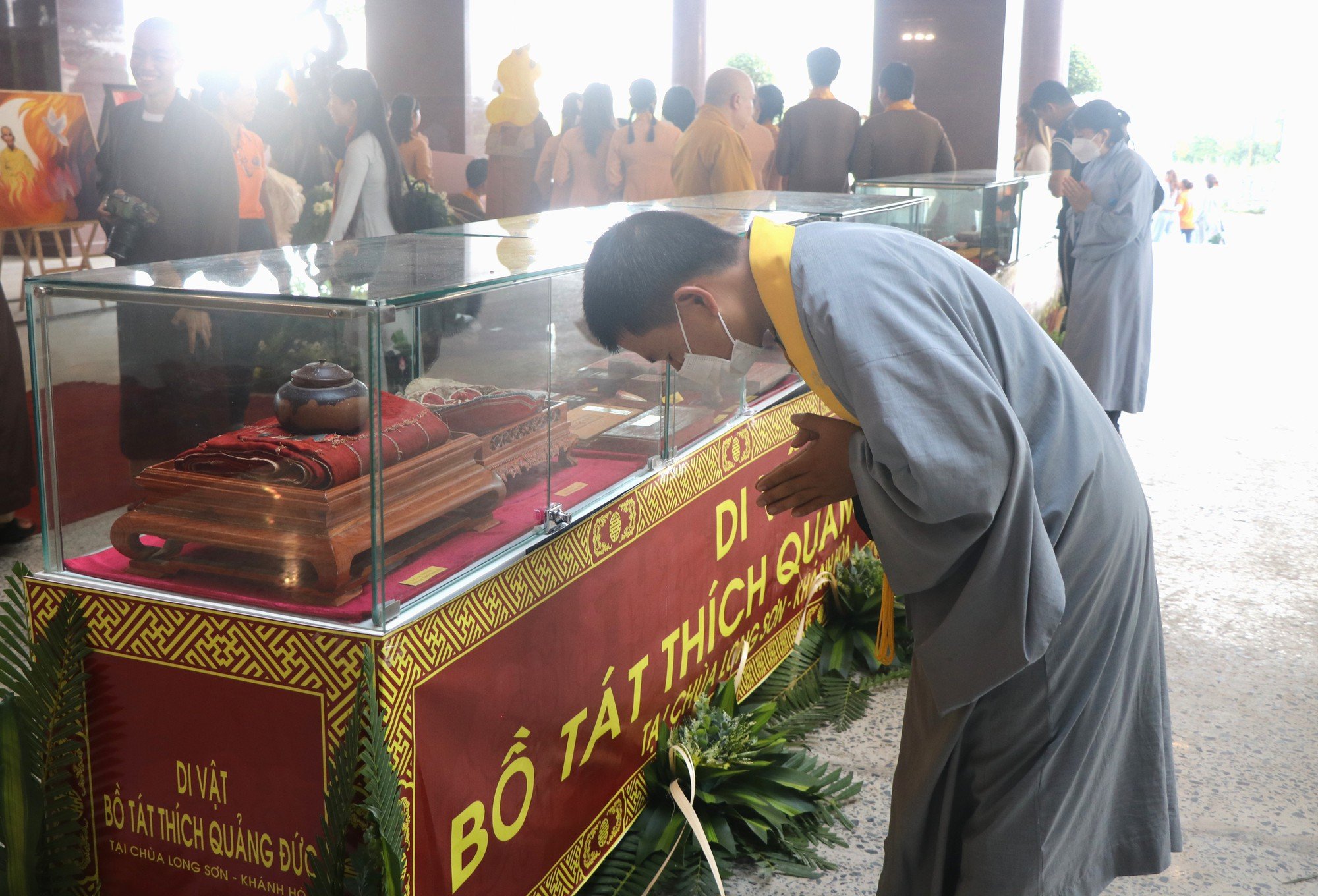
A monk bows before relics of Bodhisattva Thich Quang Duc displayed at the conference.
Speaking at the opening of the conference, Venerable Thich Tam Duc, Permanent Deputy Director of the Vietnam Buddhist Research Institute, said that every year on June 11, the Vietnamese Buddhist community at home and abroad respectfully commemorates Bodhisattva Thich Quang Duc with the majestic image of the "Sacred Fire", marking the eternal protection of Vietnamese Buddhism.
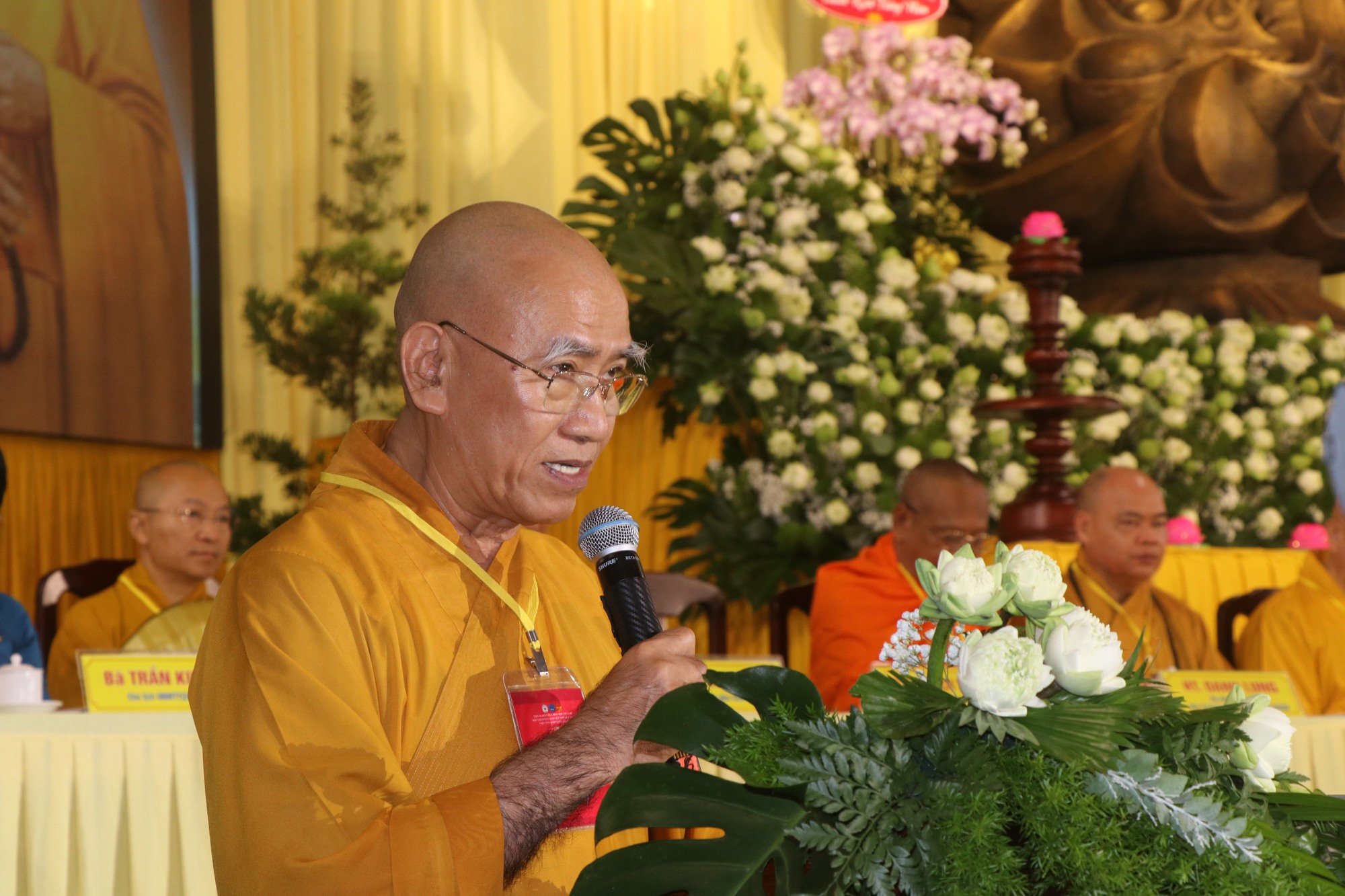
According to Venerable Thich Tam Duc, the struggle for freedom of belief and religious equality of Vietnamese Buddhism with a spirit of non-violence has proven that justice always triumphs over brutality.
"The self-immolation of Bodhisattva Thich Quang Duc in 1963 through the press and media shocked the United States and the world. The whole world turned to Vietnam, to Vietnamese Buddhism, thanks to which Buddhism in this small country with a heroic history, facing the challenges of many empires and colonialists, still stands firm and is independent and free as it is today," Venerable Thich Tam Duc shared.
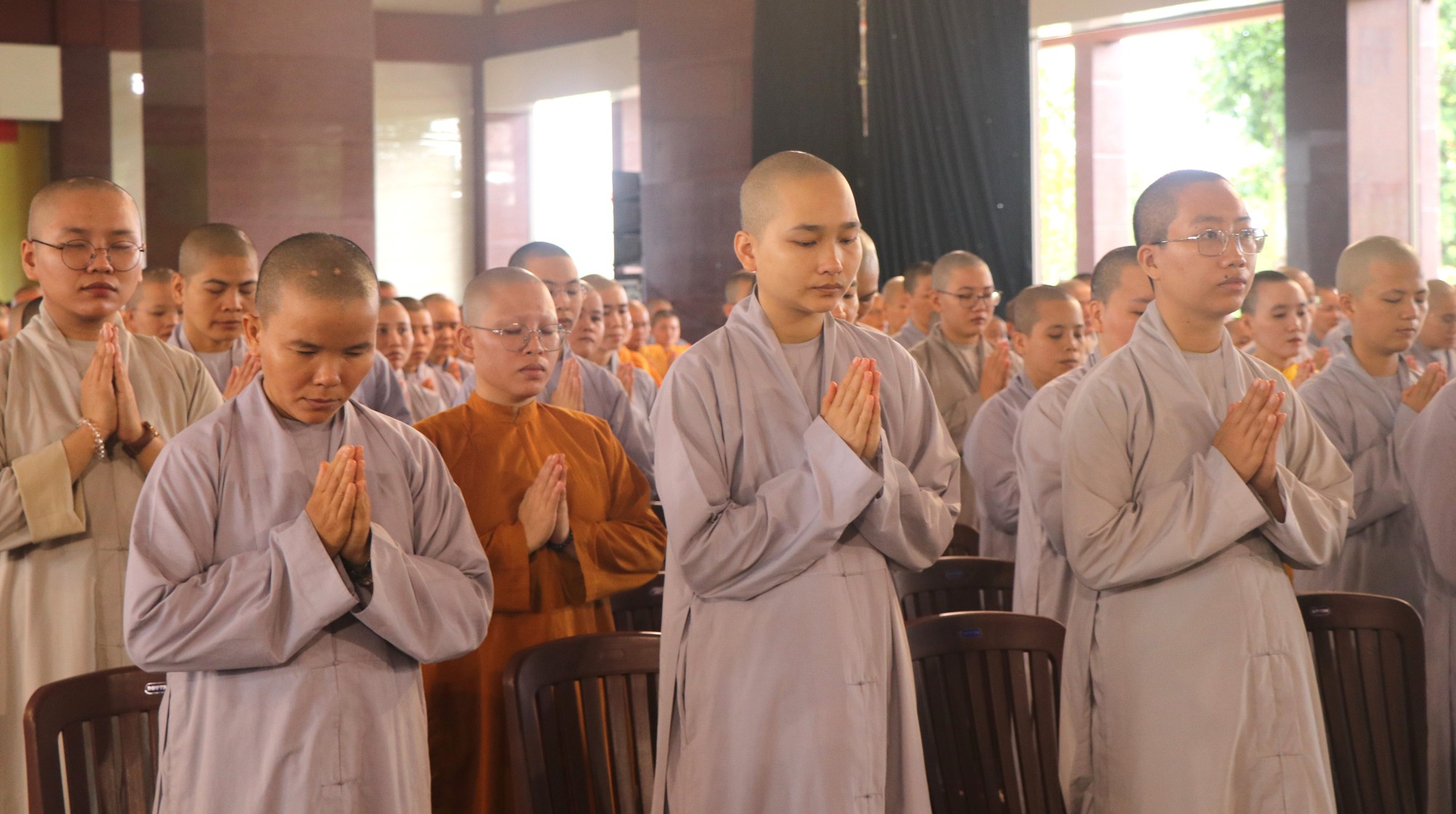
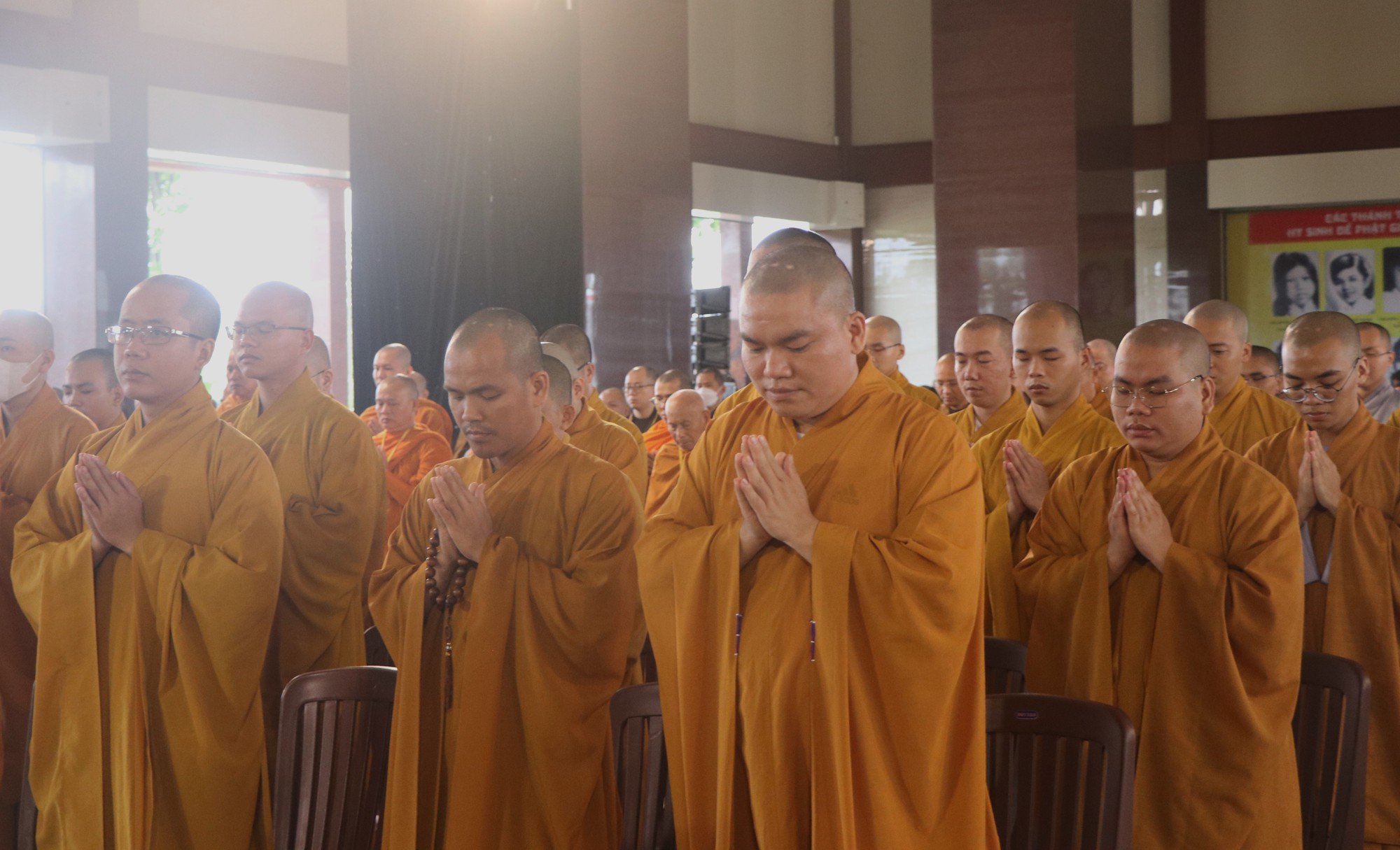
Silent Memorial to Bodhisattva Thich Quang Duc
The Supreme Patriarch of the Vietnam Buddhist Sangha, Thich Tri Quang, as a living witness after 60 years of the persecution in 1963, shared that when Bodhisattva Thich Quang Duc burned himself, all the steel fences surrounding the pagodas in Saigon were opened by the Ngo Dinh Diem government, and more importantly, people around the world responded and strongly supported the Buddhist struggle movement in Vietnam.
His Holiness the Supreme Patriarch of the Vietnam Buddhist Sangha Thich Tri Quang
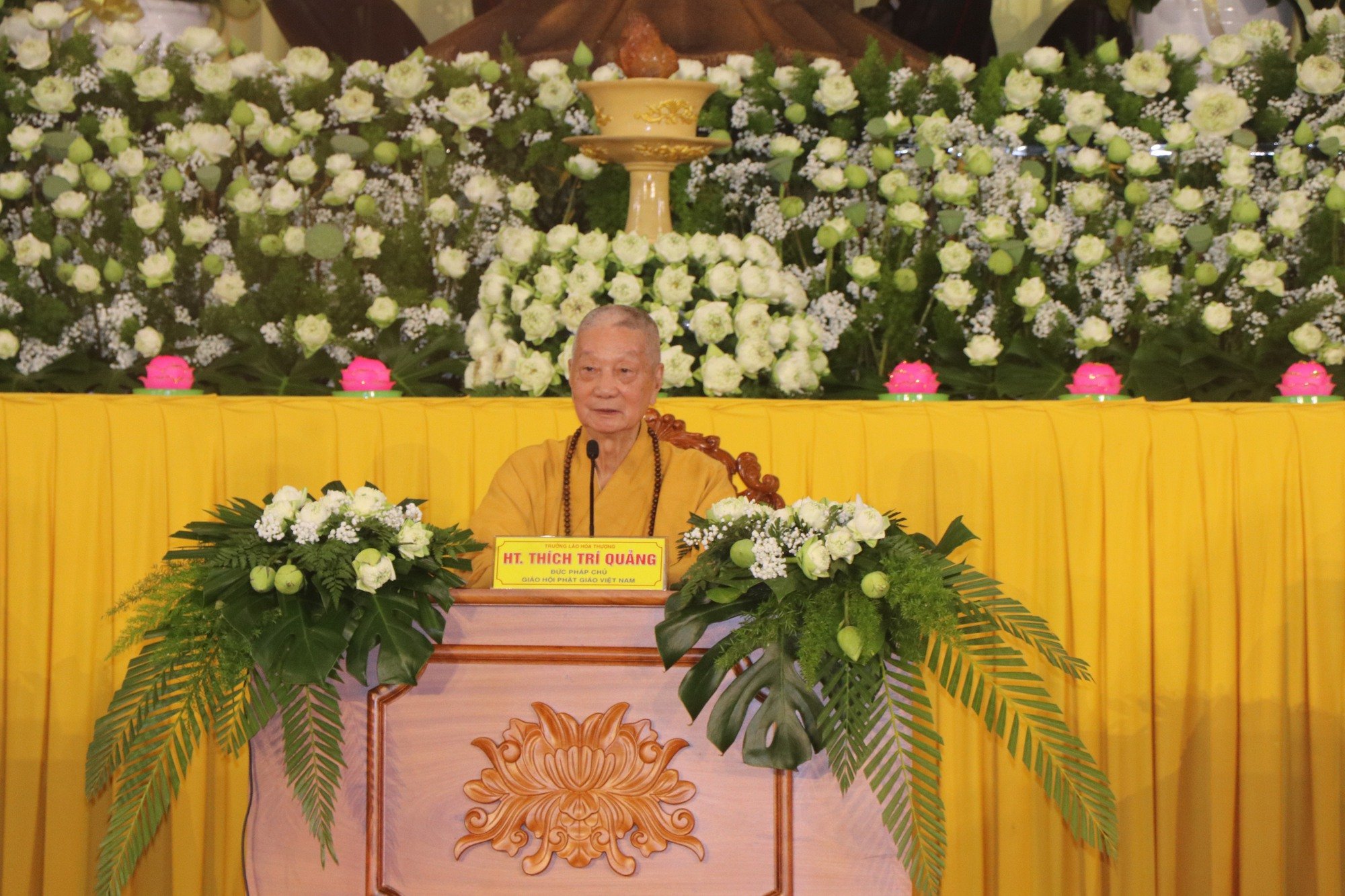
The Supreme Patriarch of the Vietnam Buddhist Sangha hopes that young monks and nuns will follow the path of Bodhisattva Quang Duc, set a shining example for life, and bring peace and happiness to humanity.
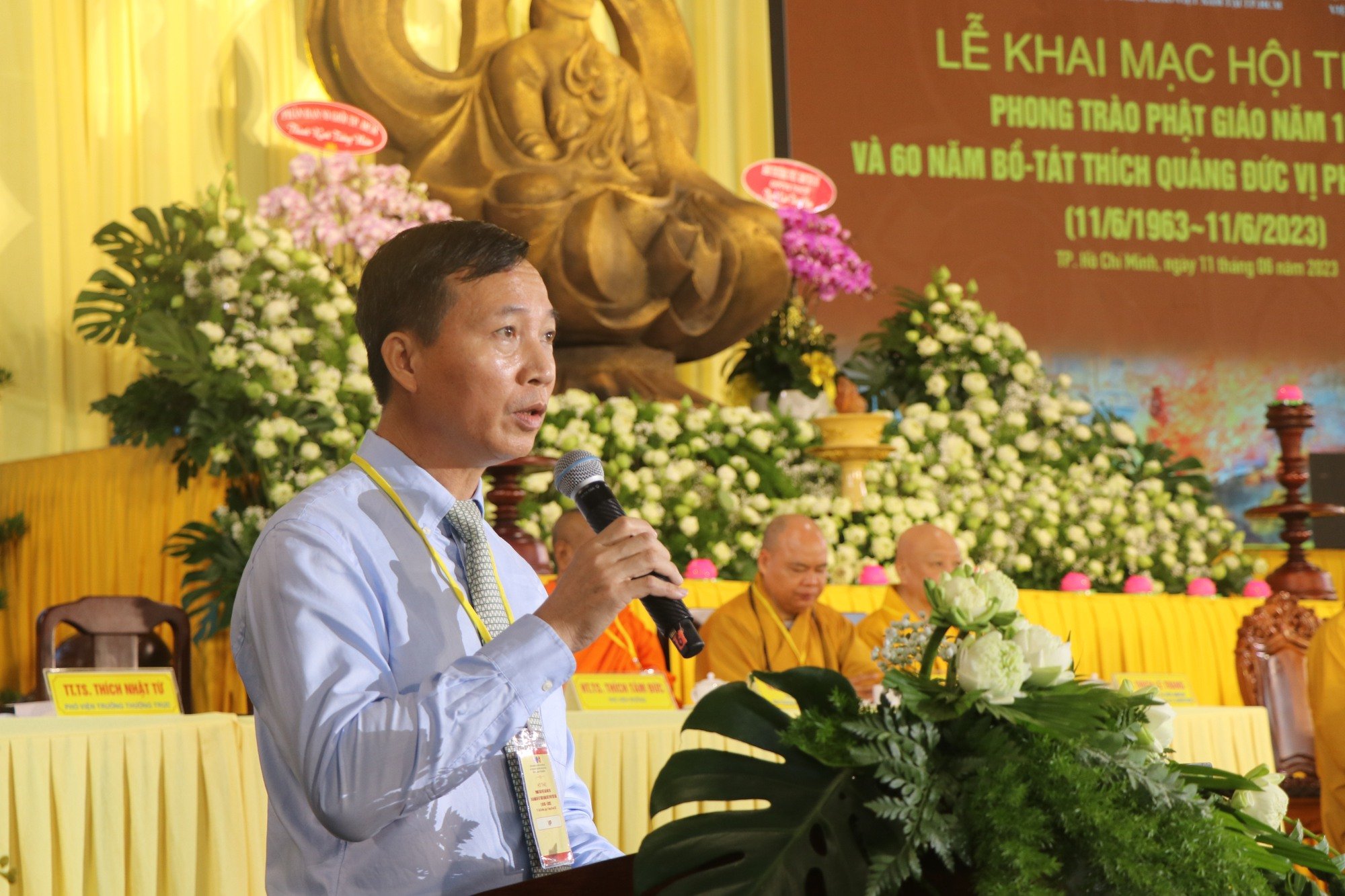
Mr. Vu Hoai Bac, Head of the Government Committee for Religious Affairs
Head of the Government Committee for Religious Affairs Vu Hoai Bac hopes and believes that with the profound and practical contributions of the papers, the conference will bring valuable documents and information about the Buddhist movement in 1963, the life and career of Bodhisattva Thich Quang Duc, and the monk's contributions to Vietnamese Buddhism. At the same time, draw historical lessons from that period, contributing to the development of the Vietnam Buddhist Sangha and our country to become stronger in the coming time.
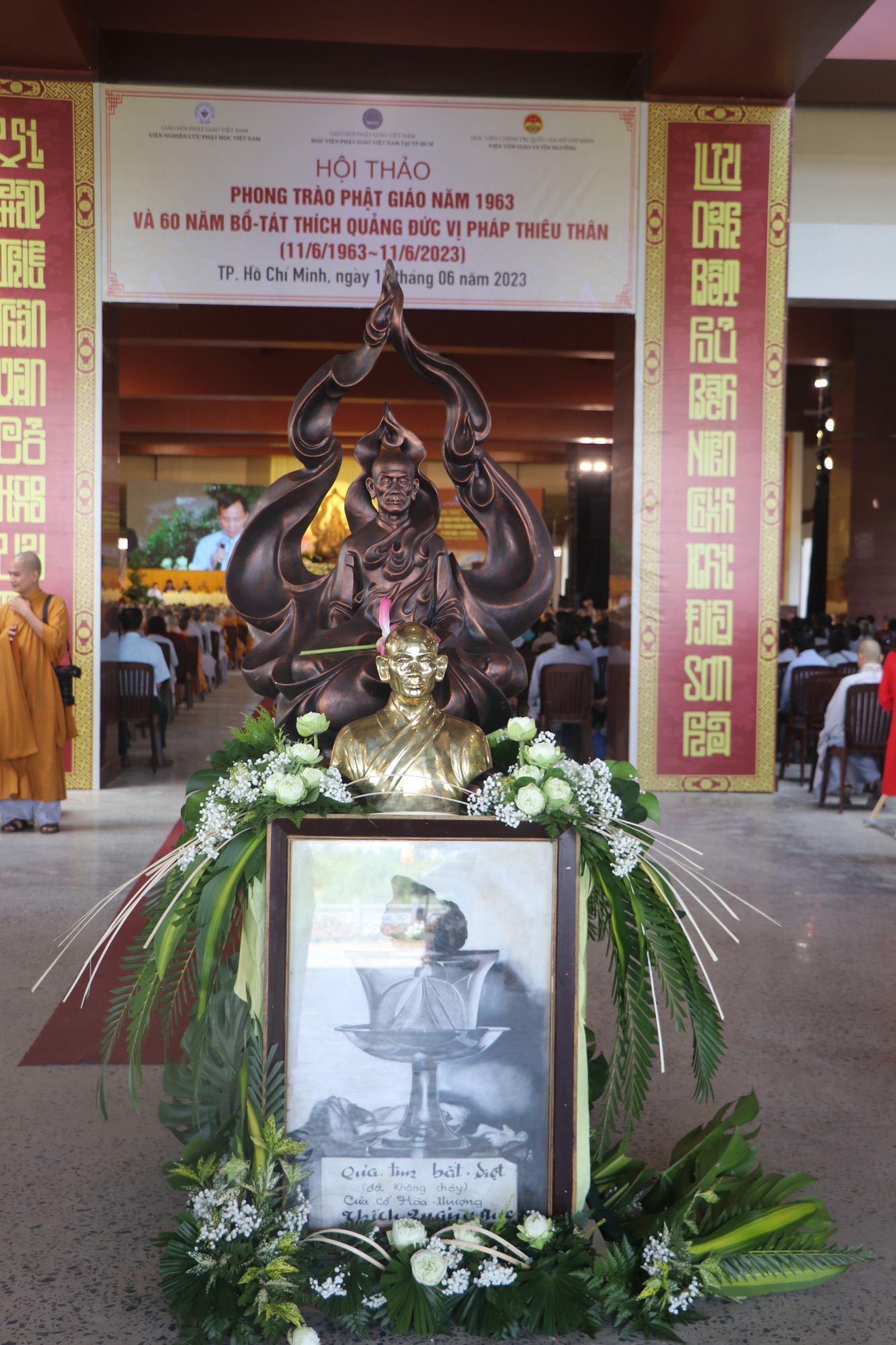
Exhibition booth at the conference
The cause of the Buddhist movement in 1963 was that the Ngo Dinh Diem government suppressed and arrested monks and nuns, blockaded pagodas, used weapons to kill Buddhist martyrs, creating many non-violent Buddhist protests from Thua Thien province to Saigon.
On June 11, 1963, Bodhisattva Thich Quang Duc decided to burn himself to death to end all injustice, so that Buddhism and 20 million compatriots in the South at that time could live in peace and freedom.
At the intersection of Phan Dinh Phung - Le Van Duyet (now Cach Mang Thang 8 and Nguyen Dinh Chieu streets, District 3, Ho Chi Minh City), Bodhisattva Thich Quang Duc doused himself in gasoline and set himself on fire. The flames rose high and covered his body, but he remained seated, his back straight like a bronze statue.
Source link




![[Photo] General Secretary To Lam attends the conference to review 10 years of implementing Directive No. 05 of the Politburo and evaluate the results of implementing Regulation No. 09 of the Central Public Security Party Committee.](https://vphoto.vietnam.vn/thumb/1200x675/vietnam/resource/IMAGE/2025/5/19/2f44458c655a4403acd7929dbbfa5039)
![[Photo] Panorama of the Opening Ceremony of the 43rd Nhan Dan Newspaper National Table Tennis Championship](https://vphoto.vietnam.vn/thumb/1200x675/vietnam/resource/IMAGE/2025/5/19/5e22950340b941309280448198bcf1d9)
![[Photo] Close-up of Tang Long Bridge, Thu Duc City after repairing rutting](https://vphoto.vietnam.vn/thumb/1200x675/vietnam/resource/IMAGE/2025/5/19/086736d9d11f43198f5bd8d78df9bd41)
![[Photo] President Luong Cuong presents the 40-year Party membership badge to Chief of the Office of the President Le Khanh Hai](https://vphoto.vietnam.vn/thumb/1200x675/vietnam/resource/IMAGE/2025/5/19/a22bc55dd7bf4a2ab7e3958d32282c15)
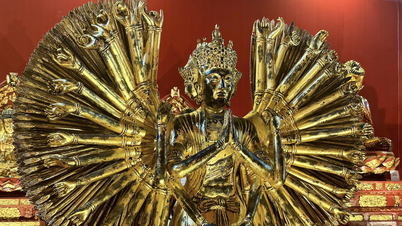



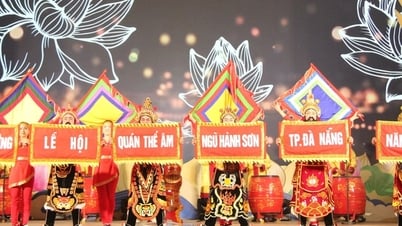


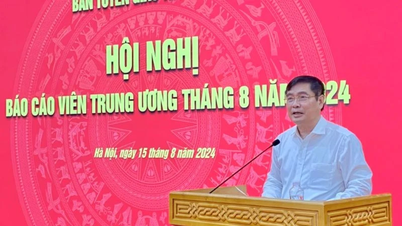

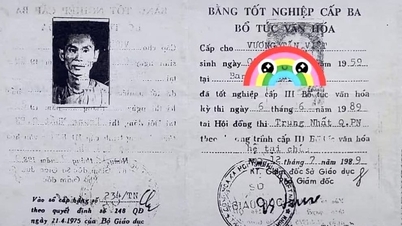
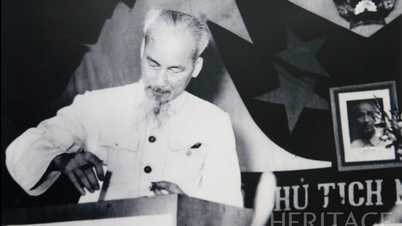

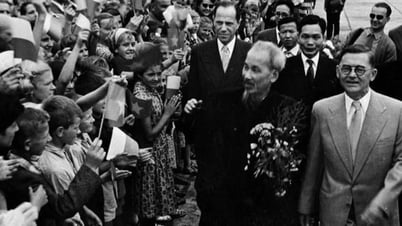

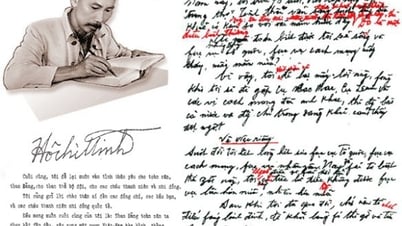

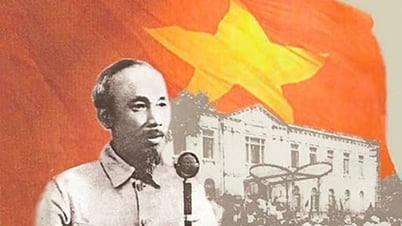

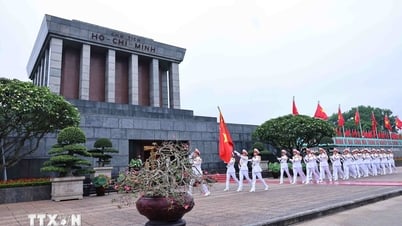











![[Photo] Prime Minister Pham Minh Chinh inspects the progress of the National Exhibition and Fair Center project](https://vphoto.vietnam.vn/thumb/1200x675/vietnam/resource/IMAGE/2025/5/19/35189ac8807140d897ad2b7d2583fbae)








































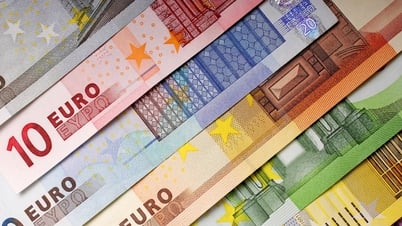

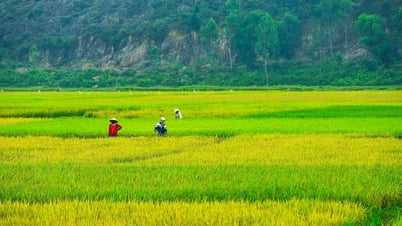




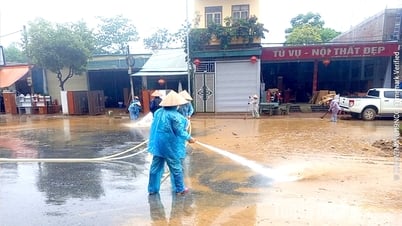







![[VIDEO] - Enhancing the value of Quang Nam OCOP products through trade connections](https://vphoto.vietnam.vn/thumb/402x226/vietnam/resource/IMAGE/2025/5/17/5be5b5fff1f14914986fad159097a677)



Comment (0)